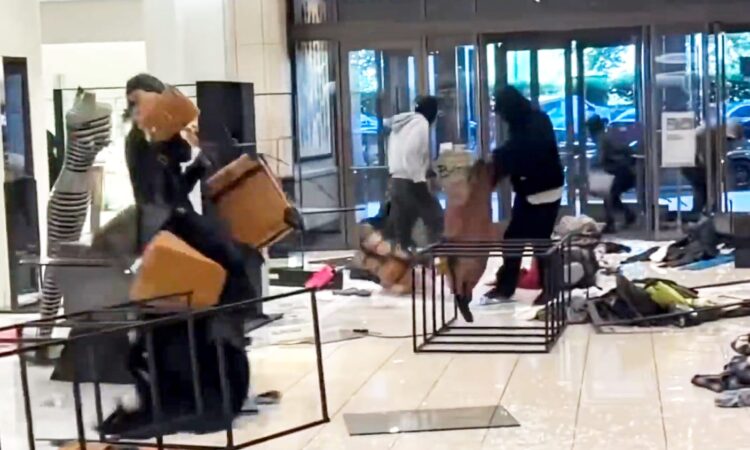
Crime in the United States has declined significantly over the last year, according to new FBI data that contradicts a widespread national perception that law-breaking and violence are on the rise.
A Gallup poll released this month found that 77% of Americans believe crime rates are worsening, but they are mistaken, the new FBI data and other statistics show.
The FBI data, which compares crime rates in the third quarter of 2023 to the same period last year, found that violent crime dropped 8%, while property crime fell 6.3% to what would be its lowest level since 1961, according to criminologist Jeff Asher, who analyzed the FBI numbers.
Murder plummeted in the United States in 2023 at one of the fastest rates of decline ever recorded, Asher found, and every category of major crime except auto theft declined.
Yet 92% of Republicans, 78% of independents and 58% of Democrats believe crime is rising, the Gallup survey shows.
“I think we’ve been conditioned, and we have no way of countering the idea” that crime is rising,” Asher said. “It’s just an overwhelming number of news media stories and viral videos — I have to believe that social media is playing a role.”
The FBI’s quarterly numbers cover about 78% of the U.S. population and don’t give as full a picture as the more comprehensive annual report the FBI puts out once a year. But Asher said the quarterly reports in the past have hewed fairly close to the annual ones.
The most recent annual report, released in October, covered 94% of the country and found that violent crime in 2022 fell back to pre-pandemic levels, with murder dropping 6.1%.
Asher maintains a separate database of murder in big cities which found that murder is down 12.7 percent this year, after rising during the pandemic.
Detroit is on pace to have the fewest murders since 1966, Asher found, while Baltimore and St Louis are on track to post the fewest murders in each city in nearly a decade. A few cities, including Memphis and Washington DC, are still seeing increases in their murder rates, but they are outliers.
FBI data doesn’t have a separate category for retail theft. It falls under “larceny,” which declined overall last year, according to the latest numbers. Retail theft is widely believed to have skyrocketed in some cities, and the industry says it is at “unprecedented” levels. But the data doesn’t necessarily support that thesis.
FBI numbers are not the only measure of crime. The annual Justice Department survey of criminal victimization in 2022 found that a lot of crime goes unreported, and that more people reported being victims of violent crime in 2022 than in 2021. But Asher has documented questions about that survey’s methodology.
So why are Americans’ perceptions about crime so different from the apparent reality? Asher believes there is a measure of partisanship at work — Republicans are more ready to believe crime is increasing while Democrats hold the White House — but he largely chalks it up to media consumption.
“My neighbors never post on NextDoor how many thousands of packages they successfully receive,” he wrote recently. “Only video of the one that randomly got swiped.”
Asher and other analysts say the natural tendency of the news media to highlight disturbing crime stories — and the tendency of those stories to go viral on social media — presents a false but persuasive picture.
Videos of flash mobs on shop lifting sprees or carjackings in broad day light are more ubiquitous, even if those crimes are not.
“These outlier incidents become the glue people rely on when guesstimating whether crime is up or down,” he wrote.
